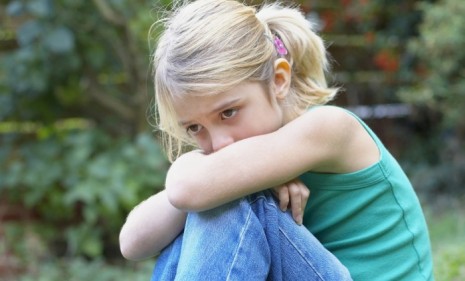The early puberty epidemic
More and more American girls are hitting puberty as young as 7. Why is this happening — and how is it affecting their health?

A free daily email with the biggest news stories of the day – and the best features from TheWeek.com
You are now subscribed
Your newsletter sign-up was successful
American girls are hitting puberty earlier than they did just a decade ago, according to a new study published in the journal Pediatrics. (Watch a local report about early puberty.) While the research team will continue to probe this phenomenon, here's a quick guide to their findings to date, and what they mean for children's health:
How common is early puberty?
More common than you might think. Fifteen percent of the 1,239 girls studied between 2004 and 2006 showed signs of breast development at age 7, including 23 percent of African-American girls, and 10 percent of Caucasians (up from just 5 percent in a landmark 1997 study).
The Week
Escape your echo chamber. Get the facts behind the news, plus analysis from multiple perspectives.

Sign up for The Week's Free Newsletters
From our morning news briefing to a weekly Good News Newsletter, get the best of The Week delivered directly to your inbox.
From our morning news briefing to a weekly Good News Newsletter, get the best of The Week delivered directly to your inbox.
Why is this happening?
It's too early to pinpoint any one cause, says lead author Dr. Frank Biro of the Cincinnati Children's Hospital. But the rising rate of childhood obesity is a factor; researchers theorize that heavyset girls are more likely to start puberty earlier because body fat can produce sex hormones. Another possible culprit: the hormone-disrupting chemicals found in everything from pesticides to flame retardants applied to furniture — compounds that have been proved to affect sexual development in animals.
How does early puberty affect children?
Profoundly, and in many ways. Estrogen production increases during sexual development — and the longer a female is exposed to estrogen, the more vulnerable she is to breast cancer. Early puberty is also simply confusing, increasing the odds that girls will develop low self-esteem, eating disorders, and depression — which, in turn, can trigger premature sexual activity.
A free daily email with the biggest news stories of the day – and the best features from TheWeek.com
How can parents help?
Make sure you tell your daughter that "her body is okay," and that she's "normal ... developing as a young girl should develop," Dr. Leslie Walker of Seattle Children's Hospital told NPR, especially if she's being teased at school. If the teasing becomes intolerable, ask school administrators for advice. Beyond that, make sure you talk to your daughter about how to deal with advances from older boys or even grown men. "They don't necessarily think, oh, here is an 8-year-old girl," says Walker. "They say oh, look ... she has breasts, she's old enough."
Sources: Time, USA Today, NPR, Globe and Mail
-
 Sepsis ‘breakthrough’: the world’s first targeted treatment?
Sepsis ‘breakthrough’: the world’s first targeted treatment?The Explainer New drug could reverse effects of sepsis, rather than trying to treat infection with antibiotics
-
 James Van Der Beek obituary: fresh-faced Dawson’s Creek star
James Van Der Beek obituary: fresh-faced Dawson’s Creek starIn The Spotlight Van Der Beek fronted one of the most successful teen dramas of the 90s – but his Dawson fame proved a double-edged sword
-
 Is Andrew’s arrest the end for the monarchy?
Is Andrew’s arrest the end for the monarchy?Today's Big Question The King has distanced the Royal Family from his disgraced brother but a ‘fit of revolutionary disgust’ could still wipe them out